- Home
- Shirlee McCoy
Home with You
Home with You Read online
HOME IN HIS ARMS
She took another step back and bumped into a swing that hung from a thick branch.
Not a tire swing.
No. That would have made things too easy.
This was a long plank of wood that hit at thigh level. She stumbled, fell backward and probably would have done the least graceful flip in the history of mankind if Sullivan hadn’t grabbed her by the waist.
He pulled her upright, his hands resting just above her hip bones, his fingers splayed along her lower spine. Her heart did that thing again. The one where it just kind of stopped and then started beating so fast she thought it might jump right out of her chest.
“Thanks,” she murmured, and he nodded, but he didn’t release her.
She didn’t want him to.
Which was stupid and dangerous and asking for trouble.
But, she couldn’t make herself move away, and she couldn’t make herself tell him to let her go....
Books by Shirlee McCoy
The Apple Valley Series
THE HOUSE ON MAIN STREET
THE COTTAGE ON THE CORNER
THE ORCHARD AT THE EDGE OF TOWN
The Home Sweet Home Series
SWEET HAVEN
SWEET SURPRISES
BITTERSWEET
The Bradford Brothers
HOME WITH YOU
THE MOST WONDERFUL TIME
(with Fern Michaels, Stacy Finz, and Susan Fox)
Published by Kensington Publishing Corporation
HOME With YOU
SHIRLEE MCCOY
ZEBRA BOOKS
KENSINGTON PUBLISHING CORP.
http://www.kensingtonbooks.com
All copyrighted material within is Attributor Protected.
Table of Contents
HOME IN HIS ARMS
Also by
Title Page
Copyright Page
Chapter One
Chapter Two
Chapter Three
Chapter Four
Chapter Five
Chapter Six
Chapter Seven
Chapter Eight
Chapter Nine
Chapter Ten
Chapter Eleven
Chapter Twelve
Chapter Thirteen
Chapter Fourteen
ZEBRA BOOKS are published by
Kensington Publishing Corp.
119 West 40th Street
New York, NY 10018
Copyright © 2018 by Shirlee McCoy
All rights reserved. No part of this book may be reproduced in any form or by any means without the prior written consent of the Publisher, excepting brief quotes used in reviews.
To the extent that the image or images on the cover of this book depict a person or persons, such person or persons are merely models, and are not intended to portray any character or characters featured in the book.
If you purchased this book without a cover you should be aware that this book is stolen property. It was reported as “unsold and destroyed” to the Publisher and neither the Author nor the Publisher has received any payment for this “stripped book.”
Zebra and the Z logo Reg. U.S. Pat. & TM Off. BOUQUET Reg. U.S. Pat. & TM Off.
ISBN: 978-1-4201-4522-9
eISBN-13: 978-1-4201-4523-6
eISBN-10: 1-4201-4523-1
Chapter One
Here’s how it all went down:
She’d been sitting at the kitchen table, minding her own business, trying to eat breakfast. She’d had the newspaper in just the right position to block her view of Lu and the little glass cup that held Lu’s false teeth. Nearly two months living back on the homestead, and she knew the routine. No Internet. No TV. Five a.m. breakfast followed by mucking out the stalls and feeding all twelve of Lu’s therapy horses.
So, yeah . . .
She’d been trying to eat breakfast before she mucked the stalls. Multitasking, munching on toast and searching the help-wanted section of the local paper for a job.
God knew, she had to have one of those.
Lu needed money, and Rumer was going to make sure she had it. She’d already emptied out her savings and cashed in her 401 (k), but there were still medical bills to pay. She’d be able to go back to teaching in Seattle once Lu recovered enough, but right now her only option for making money was finding a job somewhere local. Until she managed to do that, finances were tight.
That made Lu worry.
Worry wasn’t good for someone who’d had triple bypass surgery. That being the case, Rumer had decided to get a job or two and put every dime she made into paying off Lu’s remaining medical bills. When she went back to Seattle at the beginning of the next school year, she wanted to know that Lu was going to be okay both physically and financially.
And, that’s why she’d been sitting at the tiny kitchen table in Lu’s tiny house ignoring the false teeth and looking for work. If things had played out the way they had for the past couple of weeks, she’d have seen nothing in the help-wanted section, dumped the remainder of her toast in the scrap bucket, and headed out to do the chores. But, in one of those cosmic twists of fate or moments of divine intervention, Lu had shoved another paper across the table and directly in front of Rumer.
“Rumer Truehart,” she’d said, tapping the page. “Take a look at that.”
That had been the gossipy little newspaper that was published in the next town over: the Benevolence Times. Lu had been having the paper delivered for as long as Rumer could remember.
“What is it you want me to see?” she’d asked, glancing at the black print but not interested in reading the byline. She wasn’t much for gossip. Probably because she’d so often been fodder for it.
“The county fair is two weeks from now.” Lu had jabbed at the announcement. “Bet they’ll have some horses and ponies.”
“You already have twelve,” Rumer had pointed out reasonably. She hadn’t wanted to start an argument. She hadn’t wanted to remind Lu of the medical bills or the cost of feed for the horses. She’d just wanted to get on with her morning.
“So? What’s that got to do with the price of tea in China?” Lu had huffed. True to form, she hadn’t taken kindly to having her plans questioned.
“Twelve is a lot.” Especially for someone who had a heart attack and nearly died. Rumer hadn’t added the rest of what she was thinking. Lu knew the truth.
She just hadn’t wanted to admit it.
“If we train one more horse, I can accept three more children into the program.” She’d folded her arms across her narrow chest, her black eyes blazing in her tanned and wrinkled face. She’d looked like what she’d always been—a hardworking, no-nonsense fighter who was used to doing things her way.
“I can’t stay to train horses, Lu.”
“Who said anything about you doing the training?”
“You said we.”
“Figure of speech,” Lu had insisted. They’d both known she was lying. “I am perfectly capable of training my own dang horses, and if you say any different it will piss me off.” Lu had shuffled over to the counter and poured herself a cup of coffee. Decaf because Rumer had done the shopping.
“I don’t want to piss you off. I want to make you see reason.”
“What’s reasonable about sitting in this house day after day? I’ve been cooped up for too long. I’m getting antsy.”
She was always antsy, always moving, always doing.
Rumer could have pointed that out, but she’d sworn six ways to Sunday that she wasn’t going to argue with her grandmother. So, instead of pointing out the obvious, she’d grabbed the Benevolence Times and skimmed the article. That was when she’d noticed the ad. Right there on the bottom left.
Help wanted. Pleasant Valley Organic
Farm. Full-time housekeeper / gardener / cook. Experience with children a plus. Live in or live out. Call Sullivan to set up an interview.
Pleasant Valley Organic Farm had sounded like a new-age hippie commune: Men with scraggly beards and bare feet. Women in long skirts and tank tops. Kids running around with dirty faces. Not her ideal job opportunity, but beggars couldn’t be choosers, so Rumer had decided to check it out.
She’d waited until a decent time and called. When the phone had gone unanswered, she’d decided to find the farm and apply in person. She’d climbed into Lu’s old pickup and headed for Benevolence, Washington, humming along to the oldies station as she drove. Ten miles outside of the little town, she’d found the sign for Pleasant Valley Organic Farm and had headed up the long, windy road that seemed to lead to it. She’d been able to see the farmhouse in the distance—a two-story traditional-style that someone had painted buttercup yellow.
Yellow!
She’d taken a quick peek at the slacks she’d borrowed from Aunt Minnie. Yellow polyester. Bell-bottom. Probably from the seventies. Minnie never got rid of anything. She had an entire lifetime of stuff shoved into the double-wide trailer she lived in. It sat on the eastern edge of the homestead, a small hothouse and huge garden right behind it.
Rumer had been thinking that maybe the yellow slacks and yellow house were a sign, a portent, a hint from God that the job was hers. That after six weeks of near hell, things were finally going to get better.
And, then she’d looked up at the road again . . .
She’d looked up, and the girl was right there!
Wandering out from between overgrown field grass, skin glowing rich brown in the midmorning light. Pink tutu shimmering. Ivory tank top hanging loose. Boots clomping. A bouquet of fall flowers clutched in her hand.
Rumer had had about three seconds to take it all in, and then she’d swerved, bouncing off the road and straight into a rain culvert. Nose down, steam spilling out of the hood.
She’d scrambled out of the truck, her purse hooked over her shoulder, and the girl had still been there. Standing right in the middle of the road, gawking at the wrecked truck.
And that’s how Rumer had ended up here.
On a dirt road.
With a strange kid who was dressed in nothing but a tutu, a thin-strapped tank, a tiara, and bright green rain boots.
“Hello,” she said, because what else would she do? She sure wasn’t going to let the kid wander back to wherever she’d come from. Half naked and alone. It was chilly, for God’s sake. Early fall in eastern Washington, and winter was gaining the upper hand.
The little girl cocked her head to the side, eyeing Rumer with a look that was both suspicious and mutinous.
“Who are you?” she finally replied, every word enunciated and precise. Surprising, because she didn’t look older than three.
“Rumer Truehart. How about you? What’s your name?” She crouched so that they were eye level, offering a smile.
She got a scowl in response.
“I’m not supposed to talk to strangers,” the girl said, her eyes so dark Rumer could barely see the pupils. “Not even if they offer me candy. Do you have candy?”
“No, I don’t. I do have a jacket, though. And, it’s cold. How about I let you wear it?” She shrugged out of the yellow jacket that matched the slacks. Minnie had insisted she wear both. A job interview was important, and Rumer couldn’t go in the jeans and T-shirts she’d brought from home.
Rumer could have and would have.
But . . . again: She’d promised not to argue with her grandmother and that meant she also couldn’t argue with Minnie in front of her. So, she’d put on the pantsuit and the pretty white eyelet blouse that went with it.
She held out the jacket, and the little girl snatched it from her hand.
“I’m not cold,” she declared as she struggled to get her arms into the sleeves with the bouquet still in her hand. Pink and purple petals floated to the ground as her hand and the flowers popped out through the armhole. “But, thank you very much for this.”
She had a lisp.
Which would have been totally adorable if they’d been anywhere but on that road with not another adult in sight. The kid had parents somewhere. Parents who obviously were not doing their job.
“You’re very welcome. I bet your mom will be happy that you’ve got a jacket,” she said, hoping to break the ice and get a little more information about the girl and her family.
One minute, the girl was looking at the jacket’s daisy-shaped buttons, the next she was crying. Not loud sobs. Just silent tears sliding down her cheeks.
“Mommy is at the hothpital,” the girl said, the lisp suddenly more pronounced.
“Are you trying to get to her?” Rumer guessed, because why else would the child be wandering around carrying a wilted bouquet of flowers?
“I’m making her medicine.” She sniffed back more tears and waved the flowers in front of Rumer’s face.
“Medicine?”
“Yep! Heavenly read me a book about a boy who climbed a mountain to pick a flower that would make his best friend better. One flower is good. Ten flowers is better.” She waved the bouquet again.
“Who is Heavenly?” she asked.
“My sister. She’s twelve. I’m six.”
“You’re—” Tiny was on the tip of her tongue.
She didn’t say it.
Six-year-olds didn’t often want to be told they were little.
“Is she taking care of you today?” she said instead.
“Nope. She’s making cake for Twila. It’s her birthday.”
“Is Twila also your sister?”
“Yes, she is,” the girl said emphatically. “And no one better say she’s not! Markie Winston tried it, and I popped him right in the nose. He was bleeding and everything.” She swung her free hand in a wide-arcing left hook. “Now I can’t go back to school until Wednesday. The man is not happy about it.”
“The man?”
“Yeah.” She dropped her fist and leaned close. They were nearly nose to nose, and Rumer could see the trail of drying tears on her cheeks and a thin pale scar near her hairline. There was another one right beside her lip.
“He’s not so good at kids,” the girl whispered. “Heavenly says that’s what happens when you get old without ever having children.”
“Who is he?” Certainly not the girls’ father. Maybe a relative who’d been called in to help while their mother was in the hospital?
“My uncle. Daddy’s brother. Daddy is dead, so he had to come and help out while Mommy is in the hospital.” The whisper had gotten softer, and Rumer almost didn’t hear the last part.
She saw the tears, though.
They were rolling down the girl’s face again.
“Oh, honey,” she said, giving her a gentle hug. “I’m so sorry about that.”
“Me too,” the girl wailed, her skinny arms wrapping around Rumer’s waist, the flowers rustling as they smashed against her back.
The sun was warm and bright and high, the sky blue, the air crisp. The dirt road stretched toward the yellow house and the horizon, tall grass and trees dotting the landscape. All of it picturesque and perfect. Except for the little girl standing brokenhearted in the middle of all of it. Alone except for the stranger who’d found her.
It was just so . . . wrong!
As soon as Rumer got the little girl calmed down, she was going to find the uncle and give him a piece of her mind. She didn’t care if he was ancient as days. He should still have more sense than to let a six-year-old out of his sight. Sure, this area was rural. Sure, most people were pleasant, kind, and helpful, but there were predators everywhere. Not to mention the river, the woods, the roads that crisscrossed the land.
She brushed her palms down the girl’s cheeks, wiping the tears away.
“How about I take you home? You can put your flowers in a vase and bring them to your mother the next time you go to the hospital,” she sugges
ted.
“I’m not bringing her flowers.” The girl’s chin quivered, but she’d stopped crying. “I told you: I’m making medicine. I’m going to bake it into magic cookies, and Mommy will eat them and wake up.”
It would be hard for someone who was asleep to eat, but Rumer wasn’t going to point out the flaw in logic.
“How about we go do that, then?” she asked. “Do you know how to get home?”
“Why wouldn’t I? Mrs. Bridget says I’m just about the smartest first-grader she’s ever met.”
“She’s your teacher?”
“Yes. She lets me read the second-grade books. She also sent me to the office when I punched Markie.”
“Violence is never the answer.”
“Maybe not, but it still felt good!” the girl responded, skipping ahead, her tiara glinting in the sun.
Rumer had to jog to keep up. Not easy to do in her borrowed shoes. Two-inch cream-colored pumps that Minnie had insisted she wear, because the slacks were too long, and not one woman in the Truehart family could fix that. They could muck stalls, train horses, teach kids. They could cook, clean, and organize. They could even run a very well-respected nonprofit, milk goats and cows, make cheese, plant and harvest a garden. What they could not do—had never in the history of Truehart women been able to do—was find a good man or sew a straight hem.
So, yeah, she was tottering on the heels, trying to not fall face-first into the wheatgrass. She didn’t notice that they’d taken a sharp turn through the field until she jogged onto a gravel path that cut across a fenced cow pasture. Her foot slipped on loose pebbles, and she went down. Legs one way. Arms the other.
She landed with a solid thump that knocked the wind out of her.
She must have closed her eyes on impact, because she opened them and was looking straight up at the bright blue sky.
“You okay, Rumer Truehart?” the little girl said, suddenly at her side and peering into her face.

 Home at Last
Home at Last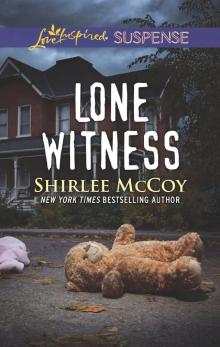 Lone Witness
Lone Witness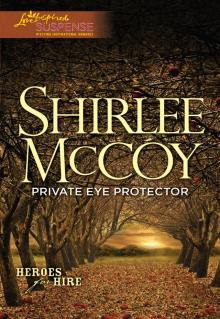 Private Eye Protector
Private Eye Protector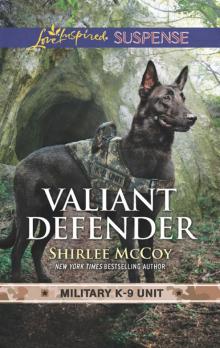 Valiant Defender
Valiant Defender Running Scared
Running Scared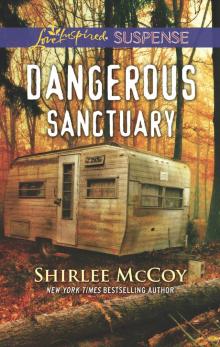 Dangerous Sanctuary
Dangerous Sanctuary Capitol K-9 Unit Christmas: Protecting VirginiaGuarding Abigail
Capitol K-9 Unit Christmas: Protecting VirginiaGuarding Abigail Hidden Witness
Hidden Witness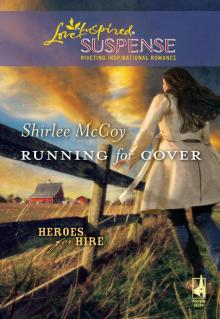 Running for Cover
Running for Cover Gone
Gone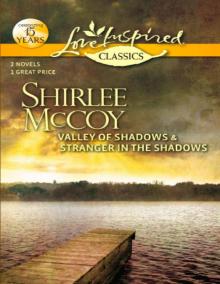 Valley of Shadows and Stranger in the Shadows: Valley of ShadowsStranger in the Shadows
Valley of Shadows and Stranger in the Shadows: Valley of ShadowsStranger in the Shadows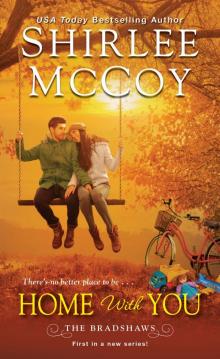 Home with You
Home with You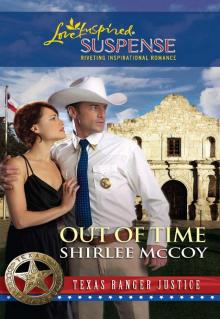 Out of Time
Out of Time Deadly Christmas Secrets
Deadly Christmas Secrets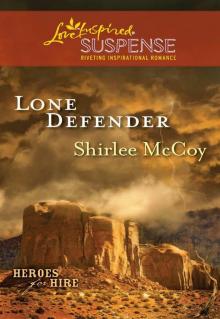 Lone Defender (Love Inspired Suspense)
Lone Defender (Love Inspired Suspense) Home Again
Home Again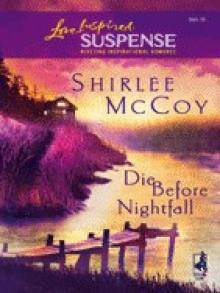 Die Before Nightfall
Die Before Nightfall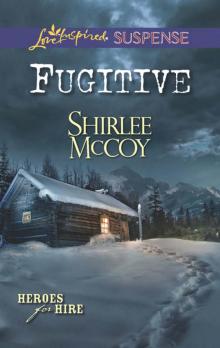 Fugitive
Fugitive Deadly Vows
Deadly Vows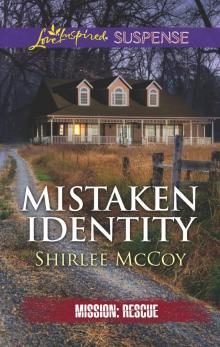 Mistaken Identity
Mistaken Identity Capitol K-9 Unit Christmas
Capitol K-9 Unit Christmas The Christmas Target
The Christmas Target SB01 - The Guardian's Mission
SB01 - The Guardian's Mission Sweet Surprises
Sweet Surprises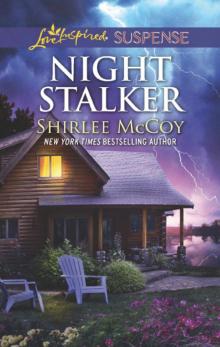 Night Stalker
Night Stalker The Cottage on the Corner
The Cottage on the Corner Love Inspired Suspense January 2014
Love Inspired Suspense January 2014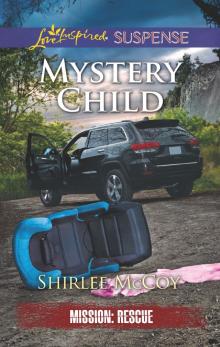 0373447477 (R)
0373447477 (R) Love Inspired Suspense March 2015 - Box Set 1 of 2: Protection DetailHidden AgendaBroken Silence
Love Inspired Suspense March 2015 - Box Set 1 of 2: Protection DetailHidden AgendaBroken Silence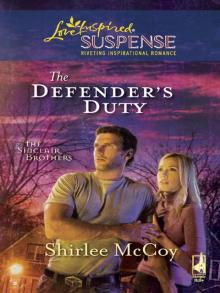 SB03 - The Defender's Duty
SB03 - The Defender's Duty Love Inspired Suspense June 2015 - Box Set 2 of 2: Exit StrategyPaybackCovert Justice
Love Inspired Suspense June 2015 - Box Set 2 of 2: Exit StrategyPaybackCovert Justice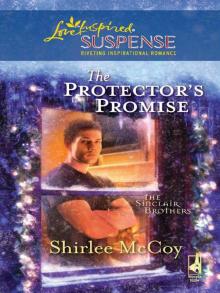 The Protector's Promise (The Sinclair Brothers)
The Protector's Promise (The Sinclair Brothers) Bodyguard
Bodyguard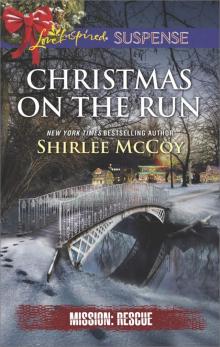 Christmas on the Run
Christmas on the Run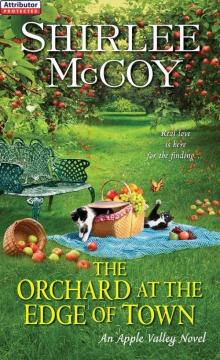 The Orchard at the Edge of Town
The Orchard at the Edge of Town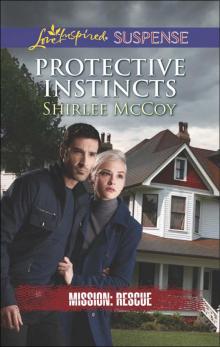 Protective Instincts
Protective Instincts Sweet Haven
Sweet Haven The House on Main Street
The House on Main Street Her Christmas Guardian
Her Christmas Guardian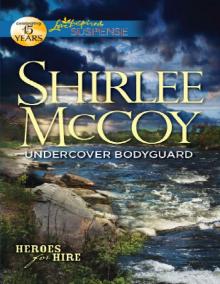 Undercover Bodyguard
Undercover Bodyguard